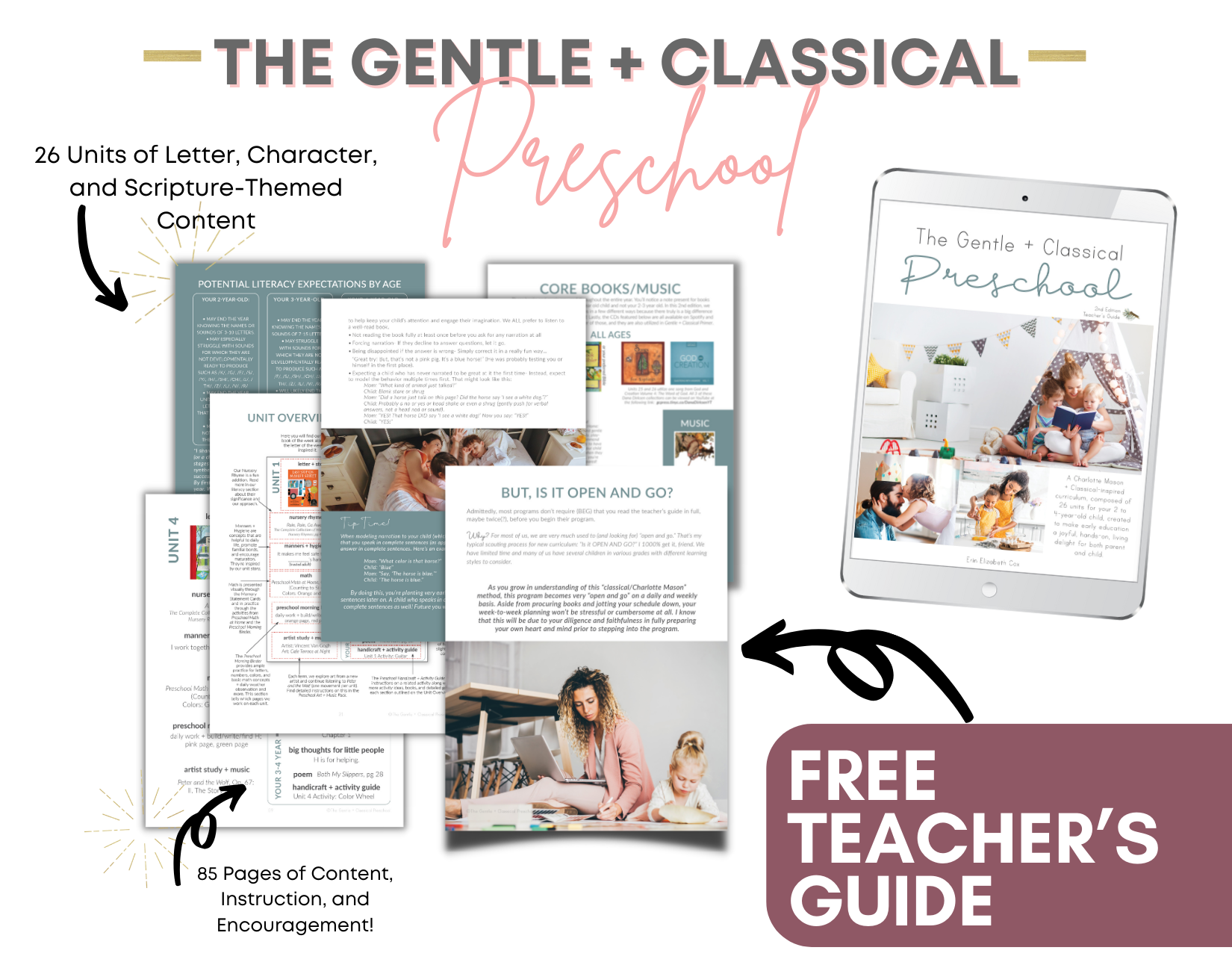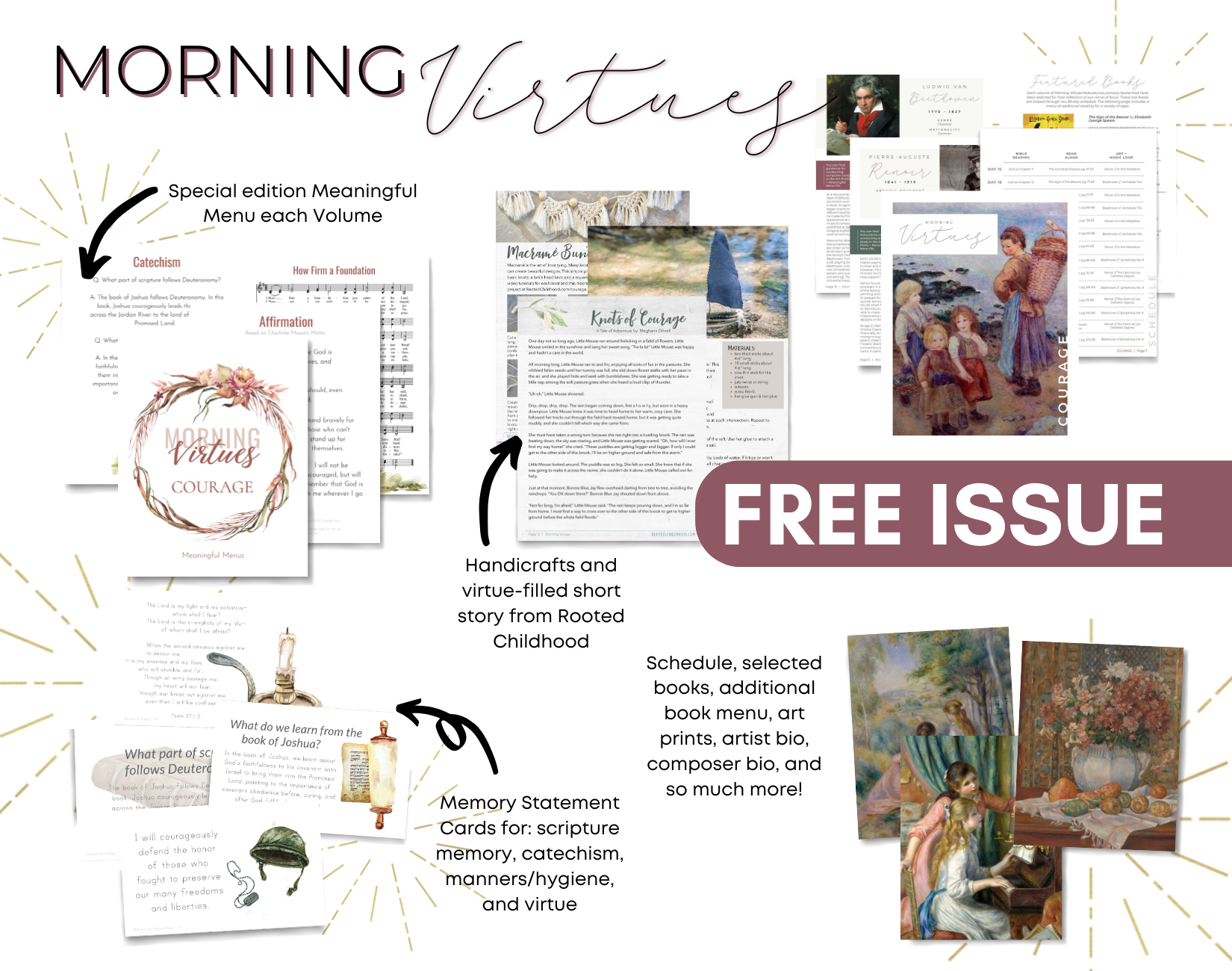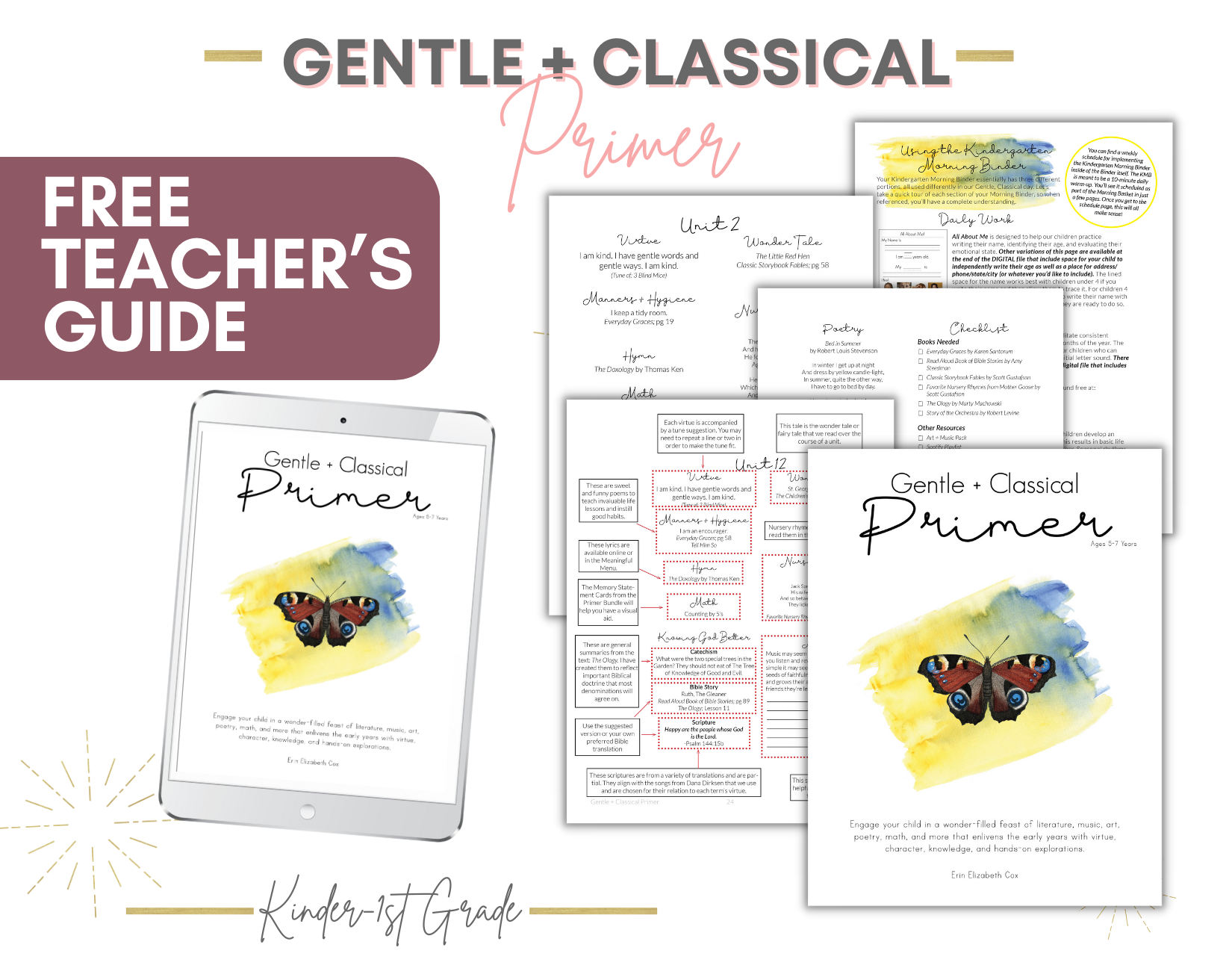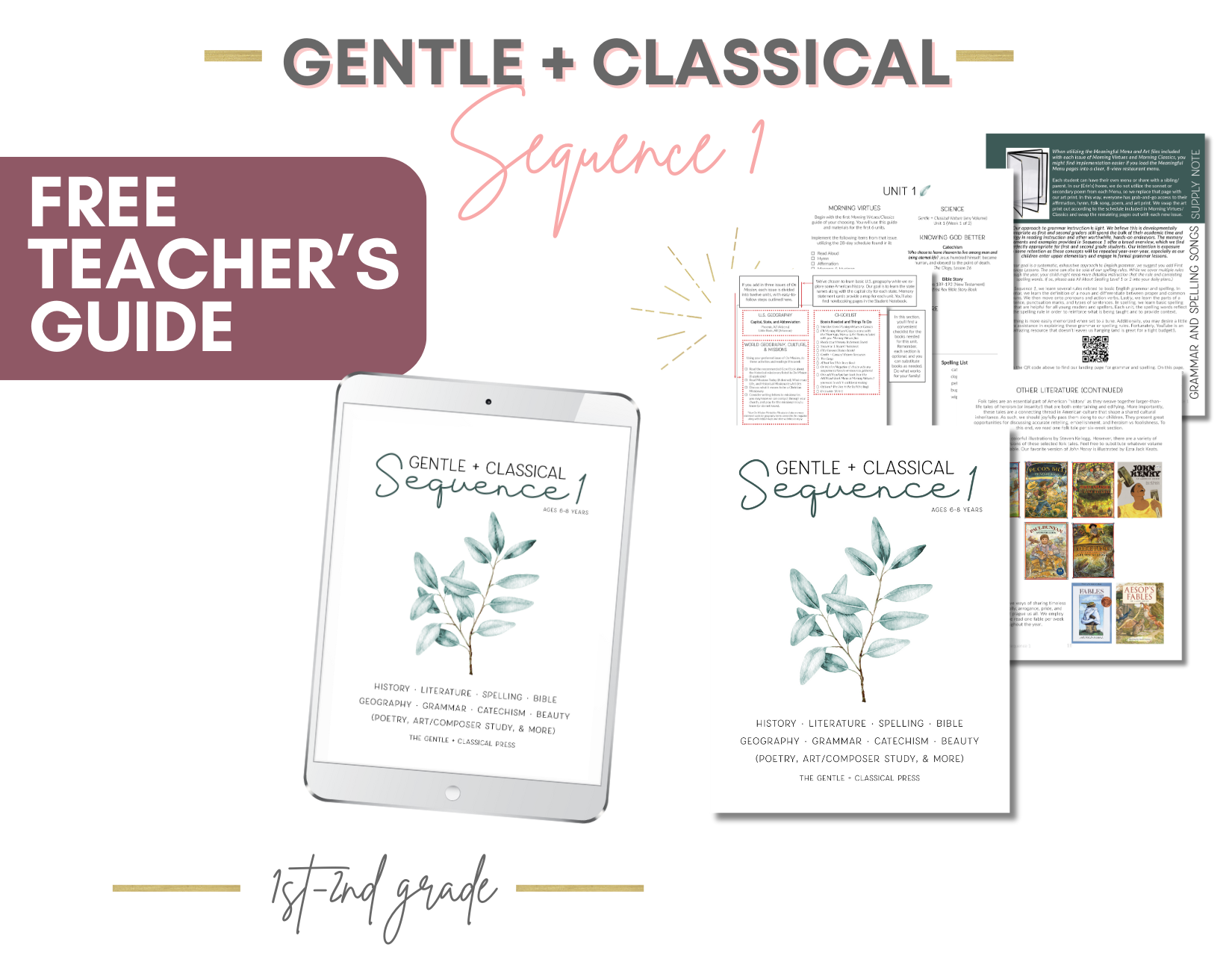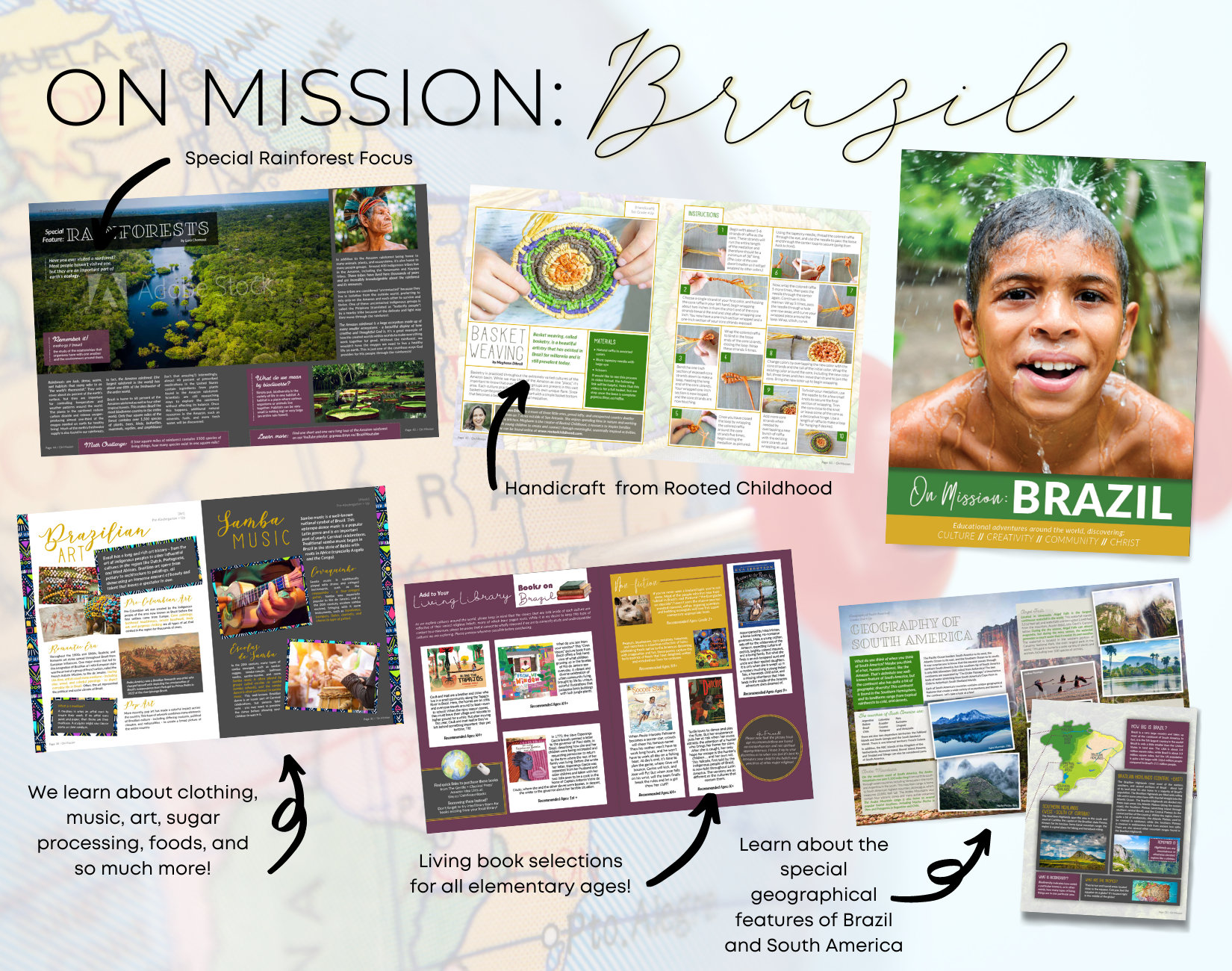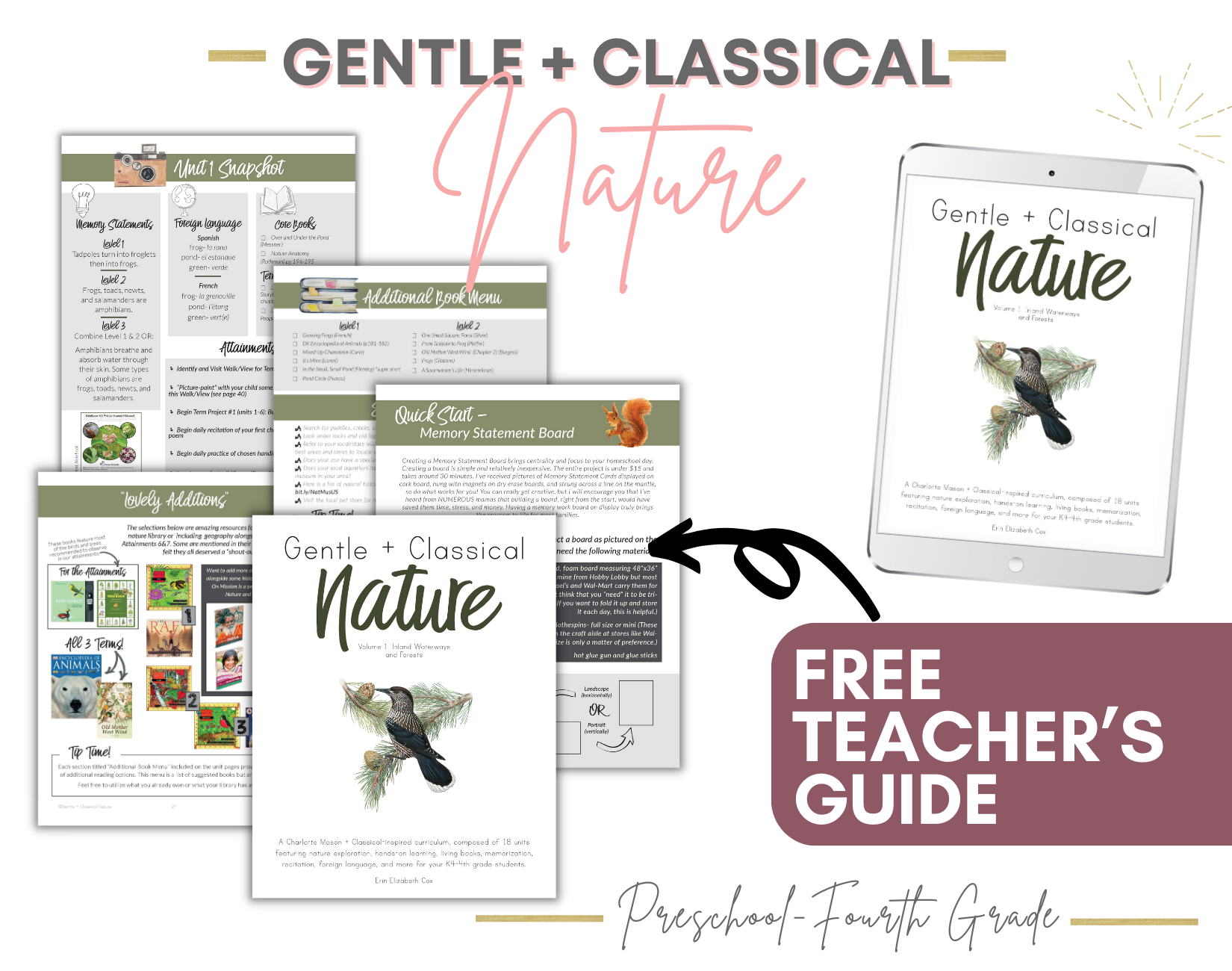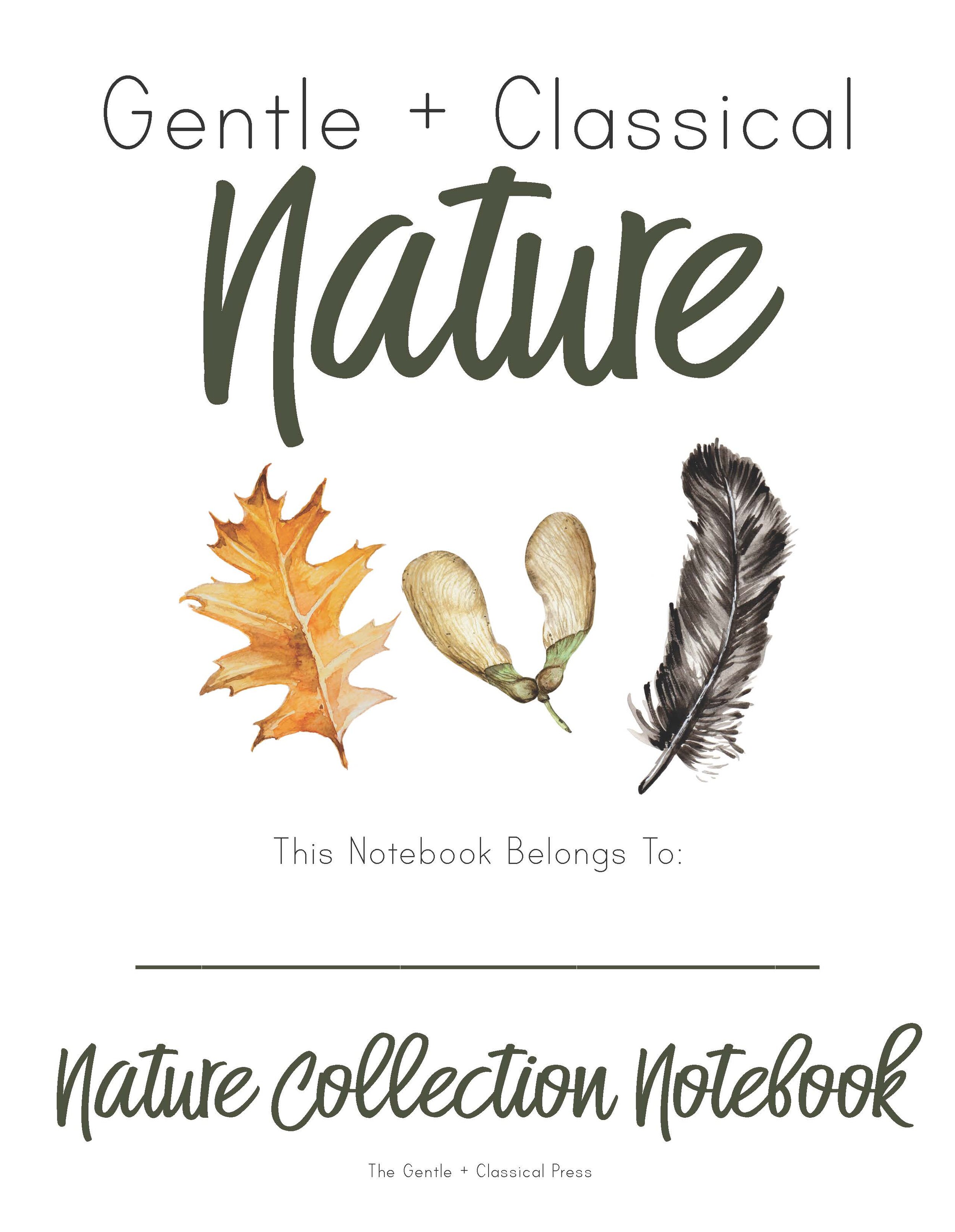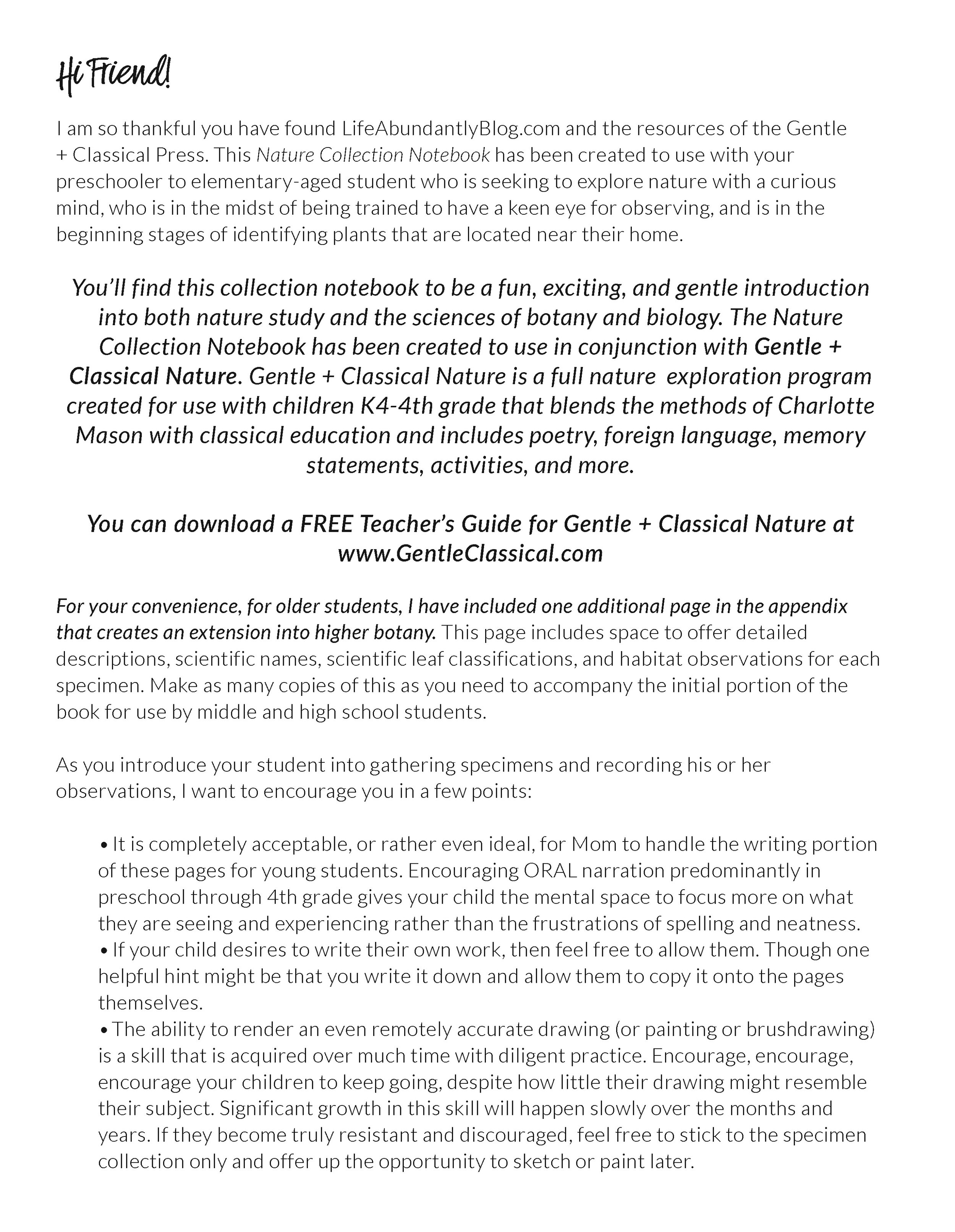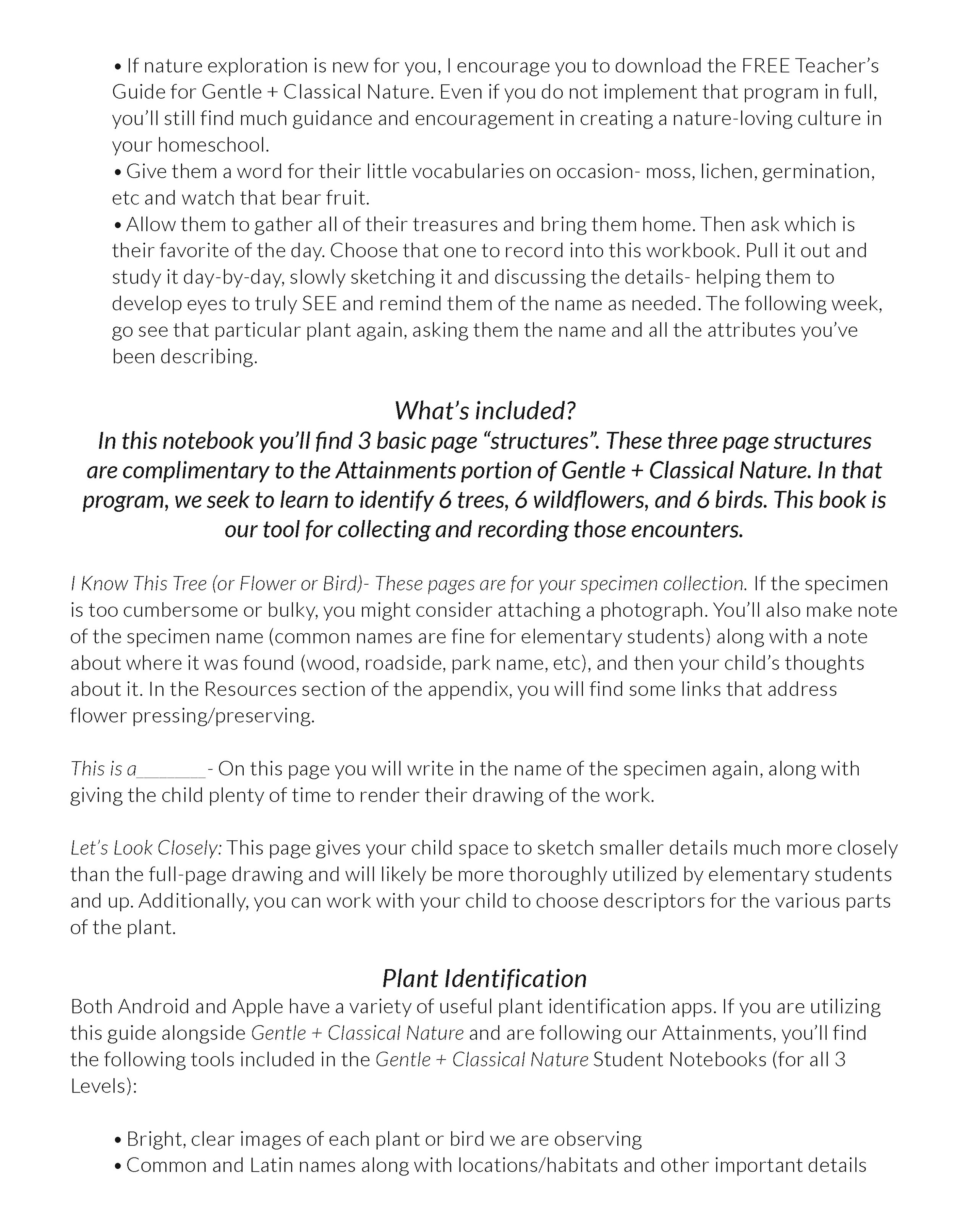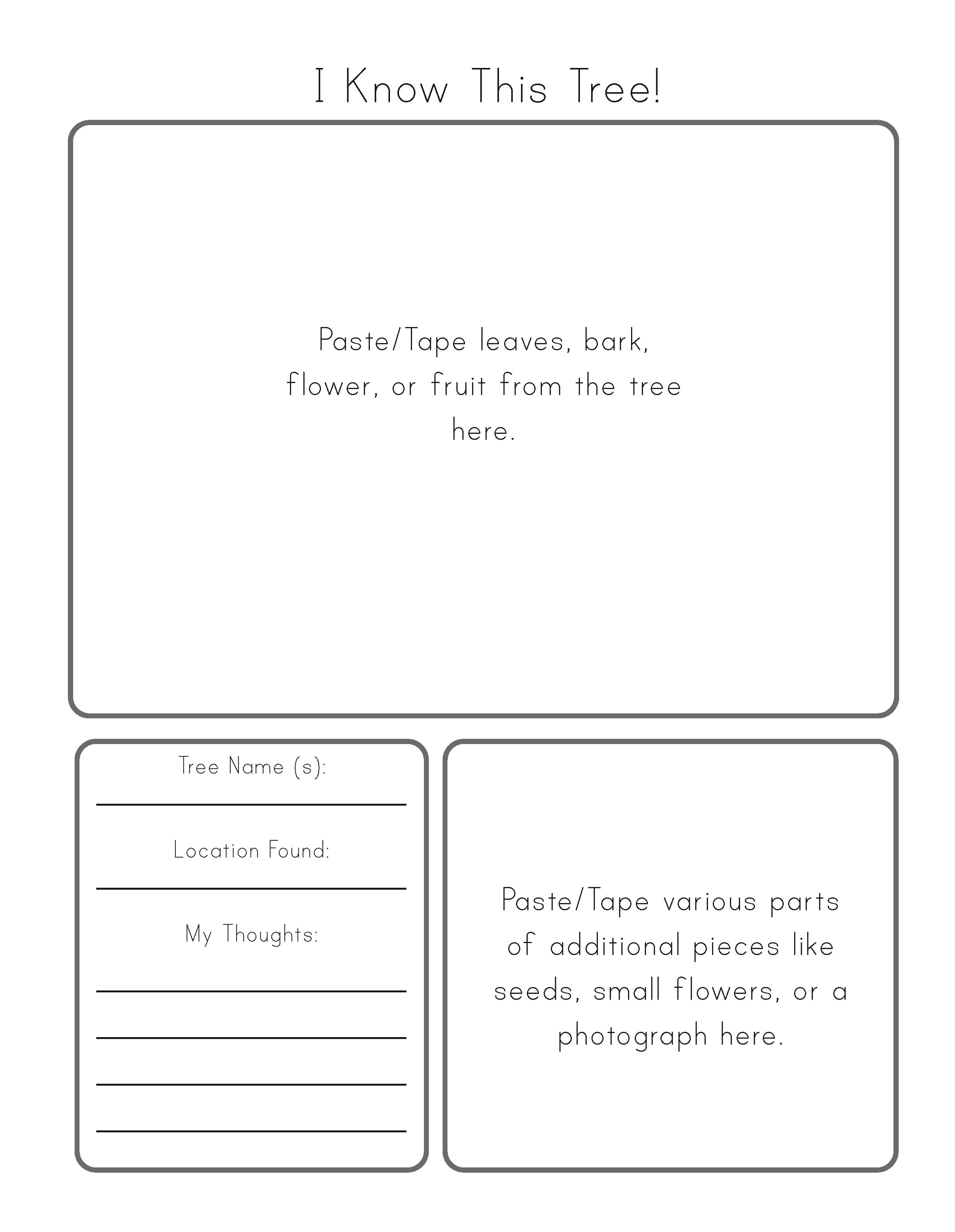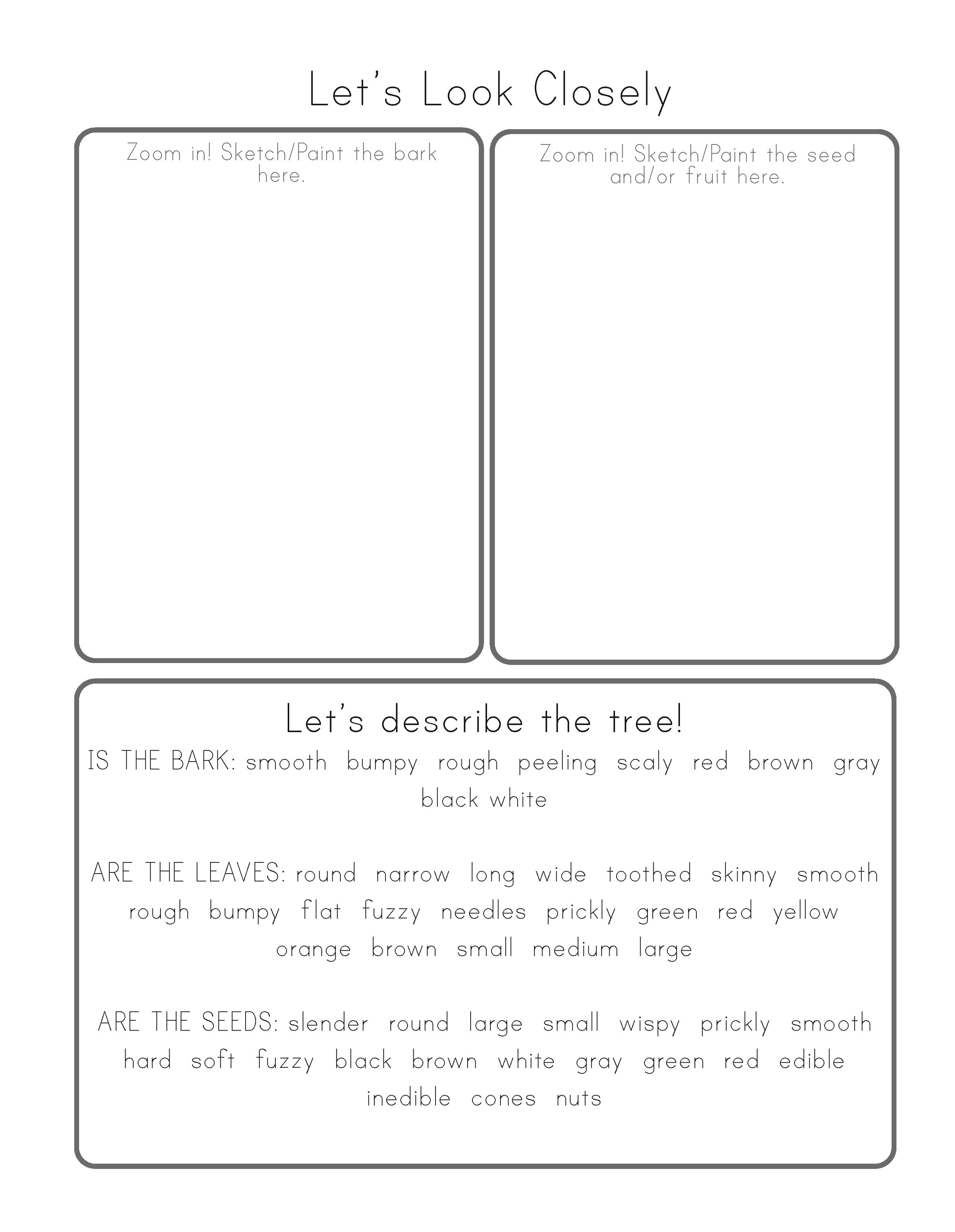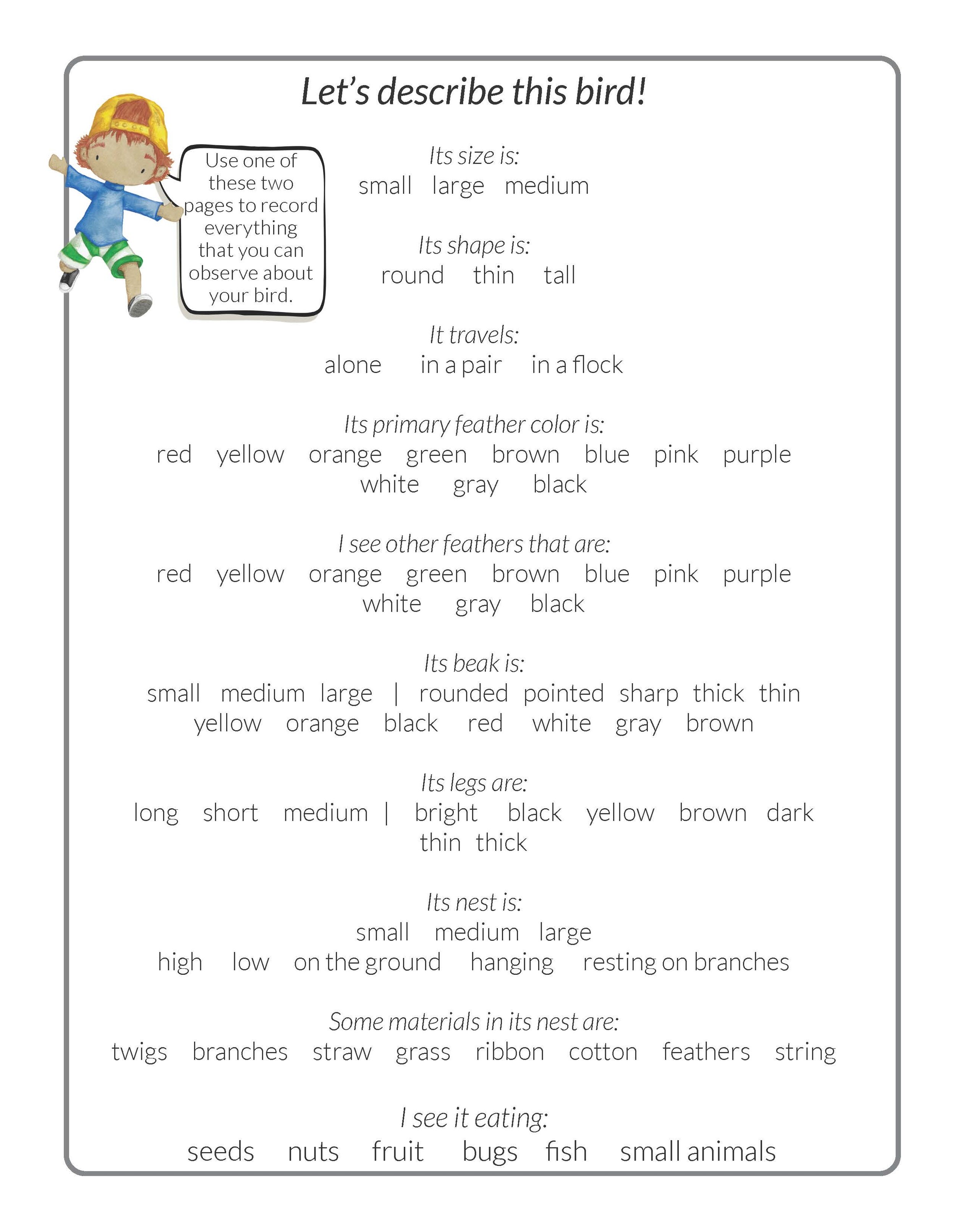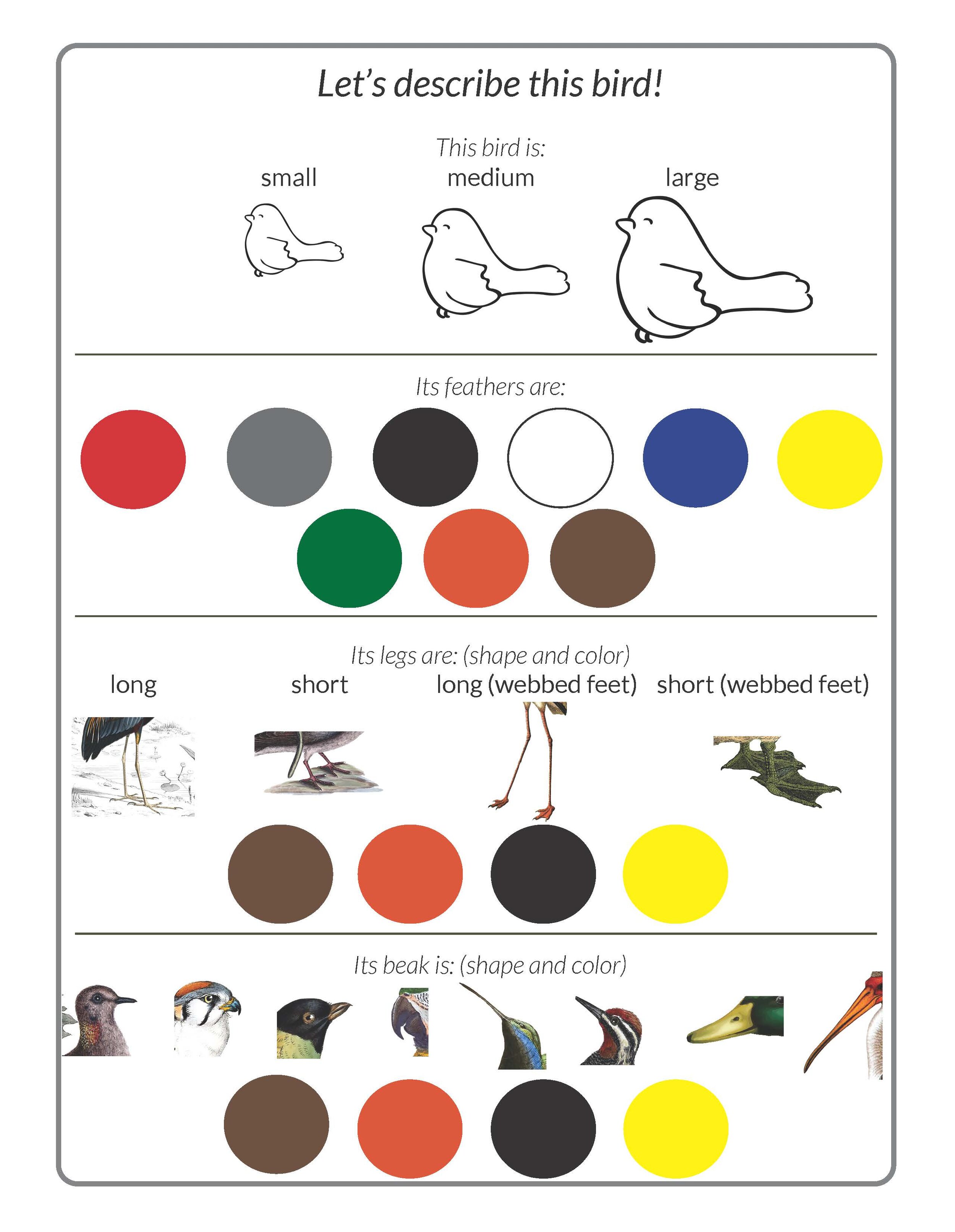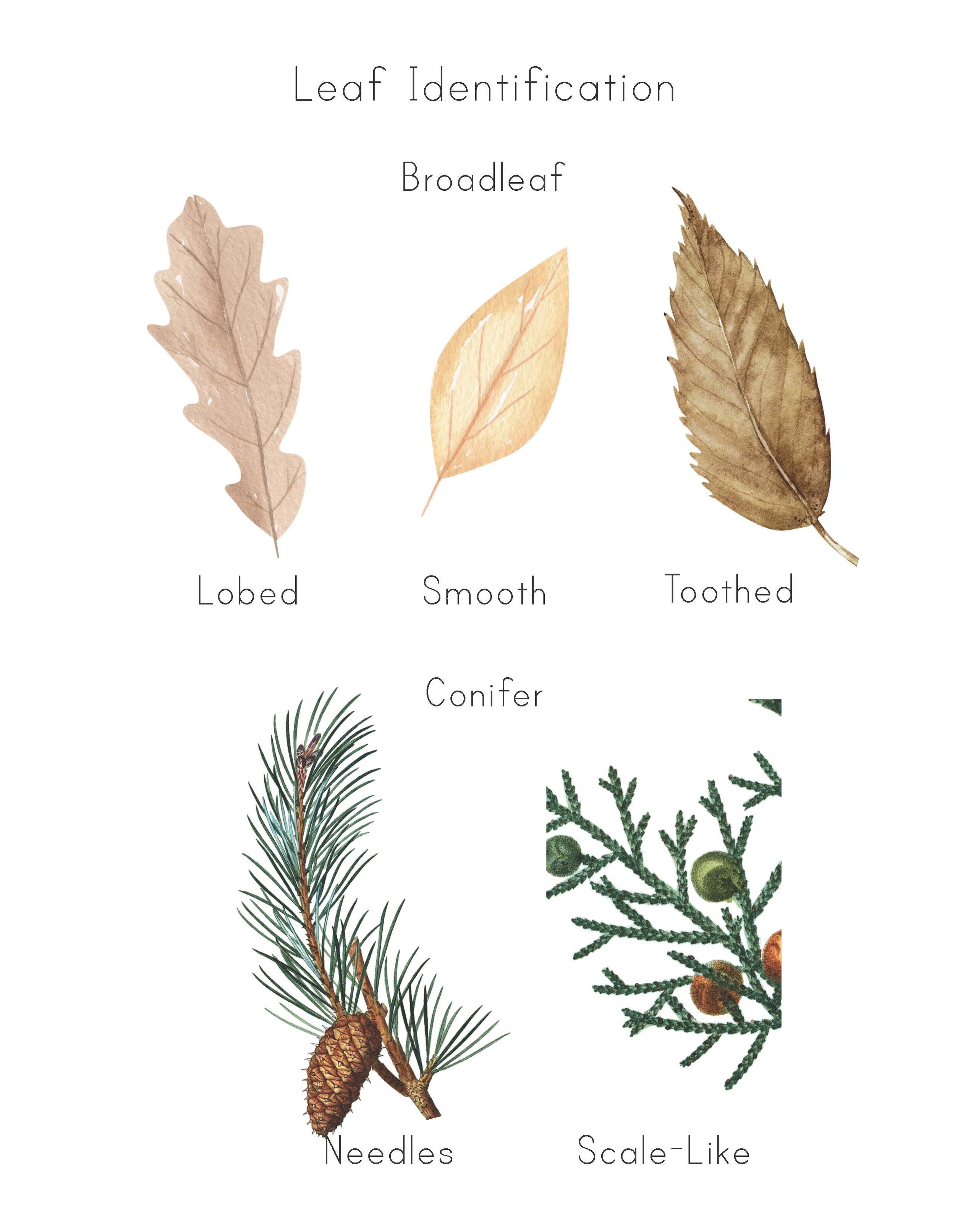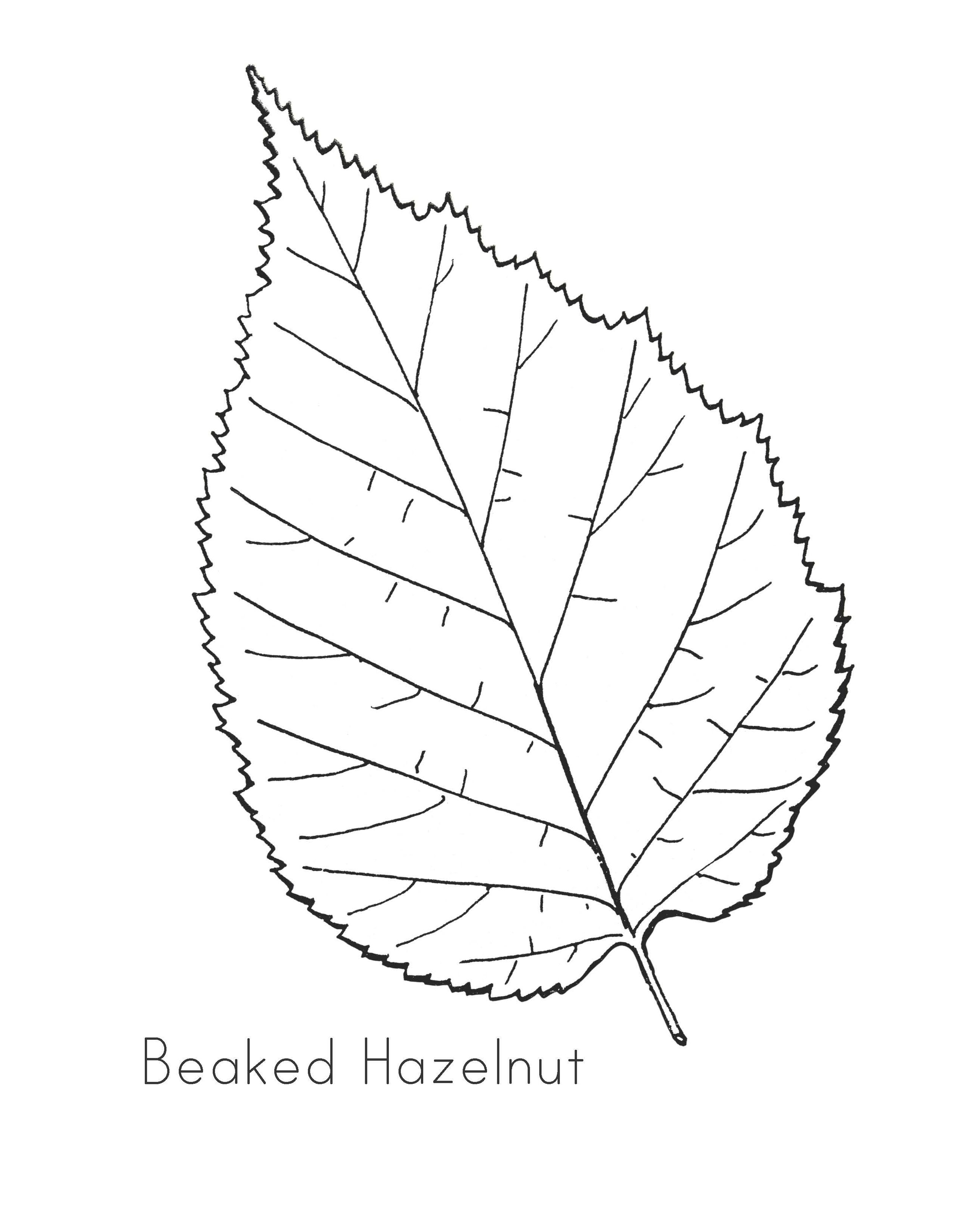Collecting Nature and Encountering Our Creator (GIANT FREEBIE)
/ Erin CoxMy Instagram feed is filled with gorgeous nature tables, muddy rainboots, and wild and free children. This speaks to my heart in an unimaginable way. While I may often get too busy to truly spend the hours out of doors that I would like... and sometimes the complaints about the heat just wear me down (we live near Satan's armpit), I know deep in my soul that being surrounded and immersed in God's creation is as close as we can get to touching him on this earth.

When I first began reading Charlotte Mason's own personal work (and I HIGHLY RECOMMEND THAT, start here), I was slightly put off. I almost felt as if she worshipped nature. But I knew I had to be missing something important, so I pressed further in. Through prayer, I realized that Charlotte was passionate about nature because she was passionate about the Creator of nature. She knew that being immersed in Creation was a sneak peak into eternity and into the heart of our Father in Heaven. Our task as mothers is to simply help our children become thoroughly acquainted with Creation, capable of truly SEEING it with clear observation.
In Home Education, Miss Mason describes a scene where a mother is tasking her children to run to a specific spot then come back and tell her all that they've seen, as vividly as possible. She goes on to say:
This is all play to the children, but the mother is doing invaluable work; she is training their powers of observation and expression, increasing their vocabulary and their range of ideas by giving the name and the uses of an object at the right moment... And she is training her children in truthful habits, by making them careful to see the fact and to state it exactly, without omission or exaggeration.
Later in the same volume, Miss Mason describes some typical scenes that children ought to know, including the names, location, and description of wildflowers and trees. Furthermore, in a reprint of a curriculum outline from a CM school in the 1890’s, she detailed a "Formidable List of Attainments of a Child of 6."
With these details all in mind, I created my Gentle + Classical Nature program that you can find here, as a complement to Gentle + Classical Primer (ppsssst, you can grab that Teacher’s Guide 100% for free). In this program, we will seek to accomplish more than half of the "attainments" as they relate to nature and geography. While the program will not be purely CM, it will reflect as much of Miss Mason's philosophies as I am capable of producing.
So with the aim in mind of the Gentle + Classical Nature program, I began by assembling a notebook for nature collecting that we will all need to have on hand. The goal of this nature notebook is related to attainments 11 and 12:
11. to mount in a scrap book a dozen common wildflowers, with leaves (one every week); to name these, describe them in their own words, and say where they found them.
12. to do the same with leaves and flowers of 6 forest trees
This 80-page Nature Collection Journal was created to help us organize and consistently pursue the attainments of being intimately knowledgeable with creation.
In the "Nature Collection Notebook", you will find the following:
54 Pages for Mounting, Sketching, and Observing 6 Trees, 6 Flowers, and 6 Birds
Tips for developing a "keen eye"
An additional page (in the appendix) developed specifically for middle and high school students to record scientific names, detailed observations, and denote specific attributes of the plants using botanical terminology
Resources for further help (including links and books)
4 Beautiful Leaf Identification Posters (leaf veining, structure, arrangement, and identification)
3 Vintage Botanical Prints (just because!)
10 Simple Coloring Pages that double as worksheets for identifying leaf structures, using the posters as a teaching tool
If nature observation and collection are new to you, rest assured that it is one of the most fruitful, educational activities you can partake in. It isn't time away from school but is education itself. The ability to attune to small details, slow down and watch an ant at work, verbally share observations about minute changes in plant life, take one observation and draw a conclusion upon another... ultimately culminates into a beautiful, living education that God gifted us with in His Creation.


